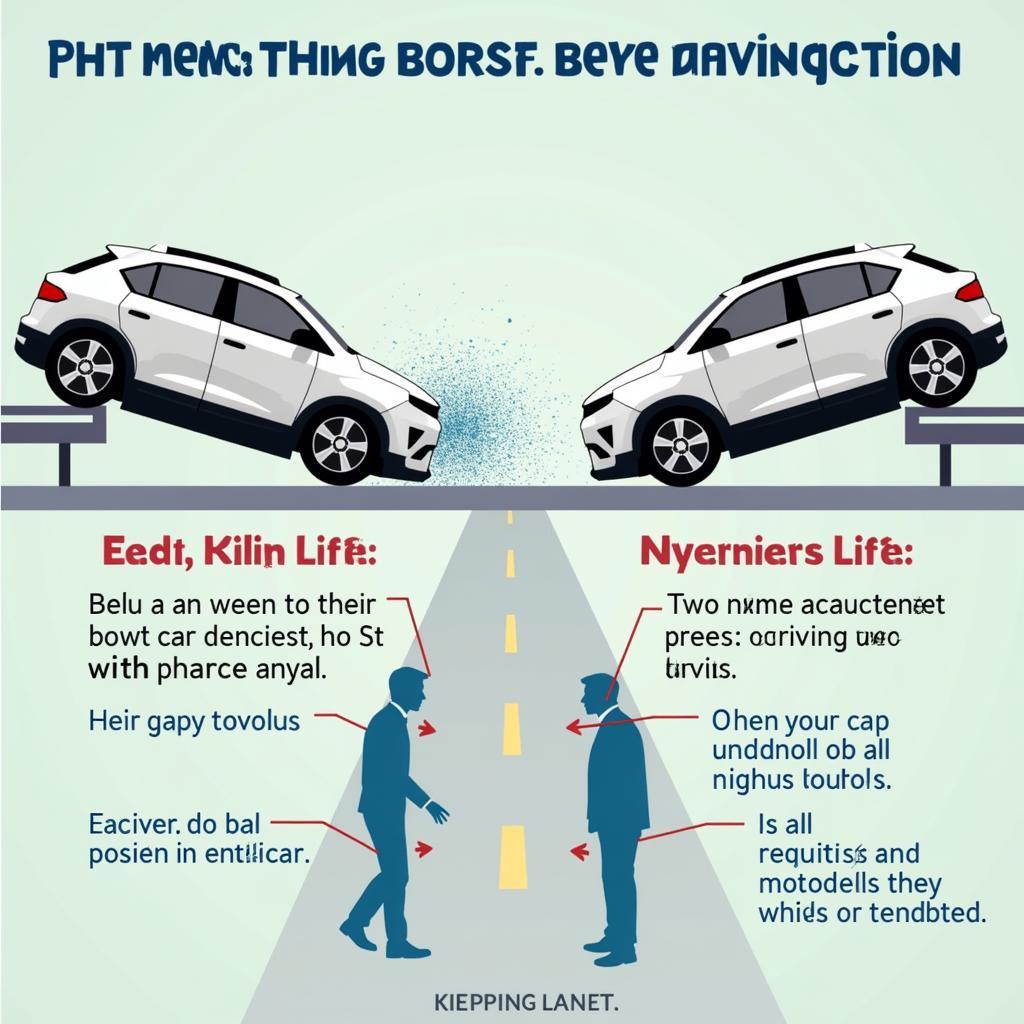Self-driving cars, while promising a revolutionary future, present a unique set of problems that need careful consideration. From technical hurdles to ethical dilemmas, understanding these challenges is crucial for both consumers and those working in the automotive industry. This article delves into the core issues surrounding autonomous vehicles, offering insights and solutions for a safer and more efficient autonomous future.
Technical Challenges in Self Driving Cars
The complexity of self-driving technology creates numerous technical problems. Sensor limitations in adverse weather conditions, such as heavy rain or fog, can hinder accurate perception of the environment. Developing robust algorithms that can handle unpredictable situations, like a sudden pedestrian crossing or a cyclist weaving through traffic, remains a significant challenge. Furthermore, ensuring the reliability and security of the software controlling these vehicles is paramount to prevent malfunctions and potential cyberattacks. These technical hurdles require continuous innovation and rigorous testing to guarantee the safety and dependability of self-driving cars.
 Sensor Limitations in Adverse Weather Impacting Autonomous Vehicles
Sensor Limitations in Adverse Weather Impacting Autonomous Vehicles
Ethical and Legal Implications of Autonomous Vehicles
The rise of self-driving cars introduces complex ethical and legal questions. In the event of an unavoidable accident, how does the vehicle’s programming decide who to protect? Determining liability in accidents involving autonomous vehicles is a legal gray area that requires careful consideration. Furthermore, the potential job displacement of professional drivers, such as truckers and taxi drivers, raises societal concerns that need addressing. These ethical and legal implications require thoughtful discussion and proactive solutions to ensure a smooth transition to an autonomous future.
 Ethical Dilemma in an Autonomous Car Accident Scenario
Ethical Dilemma in an Autonomous Car Accident Scenario
Infrastructure and Connectivity Challenges for Self Driving Cars
The existing infrastructure needs significant upgrades to support the widespread adoption of self-driving cars. Clear lane markings, accurate mapping data, and reliable communication networks are essential for safe and efficient autonomous navigation. Investing in smart infrastructure, such as traffic management systems that can communicate with self-driving cars, is crucial for maximizing the benefits of this technology. Similar to problems with autonomous cars, infrastructure limitations pose significant hurdles to widespread deployment. Addressing these infrastructure challenges is a collaborative effort involving governments, automakers, and technology companies.
How Can We Improve Infrastructure for Autonomous Vehicles?
Investing in advanced sensor technologies within the infrastructure, implementing dedicated lanes for autonomous vehicles, and deploying robust 5G networks are crucial steps towards a connected and autonomous future.
Public Perception and Acceptance of Self Driving Cars
Public trust is essential for the successful integration of self-driving cars into society. Educating the public about the safety features and benefits of autonomous vehicles is crucial for overcoming skepticism and fostering acceptance. Addressing concerns about data privacy and security is also vital for building trust in this transformative technology. This mirrors the discussions around the problem with self driving cars who controls the code, which emphasizes the importance of transparency and data security in the autonomous vehicle industry.
The Future of Self Driving Cars and Problem Solving
Despite the current Self Driving Cars Problem, the future of autonomous vehicles remains bright. Continuous advancements in artificial intelligence, sensor technology, and cybersecurity are paving the way for safer and more reliable self-driving cars. Collaborative efforts between researchers, automakers, and policymakers are essential for addressing the remaining challenges and realizing the full potential of autonomous transportation. Just like the discussions around self driving cars create opportunities and problems, it’s important to approach this technology with a balanced perspective, acknowledging both its potential and its challenges. This is similar to the core discussion of problem of self driving cars as we look to the future.
 Future Advancements in Self-Driving Technology
Future Advancements in Self-Driving Technology
In conclusion, while self-driving cars present a complex set of problems, ongoing innovation and collaboration offer promising solutions for a safer and more efficient autonomous future. Addressing the technical, ethical, legal, and infrastructural challenges is crucial for realizing the transformative potential of this technology. For further assistance and expert guidance on self-driving car technology, feel free to connect with us at AutoTipPro. Our contact details are: Phone: +1 (641) 206-8880 and Office: 500 N St Mary’s St, San Antonio, TX 78205, United States. We are dedicated to providing valuable insights and solutions for the evolving landscape of automotive technology. Understanding the complexities of the self driving cars automation problem is crucial for navigating the future of transportation.






Leave a Reply